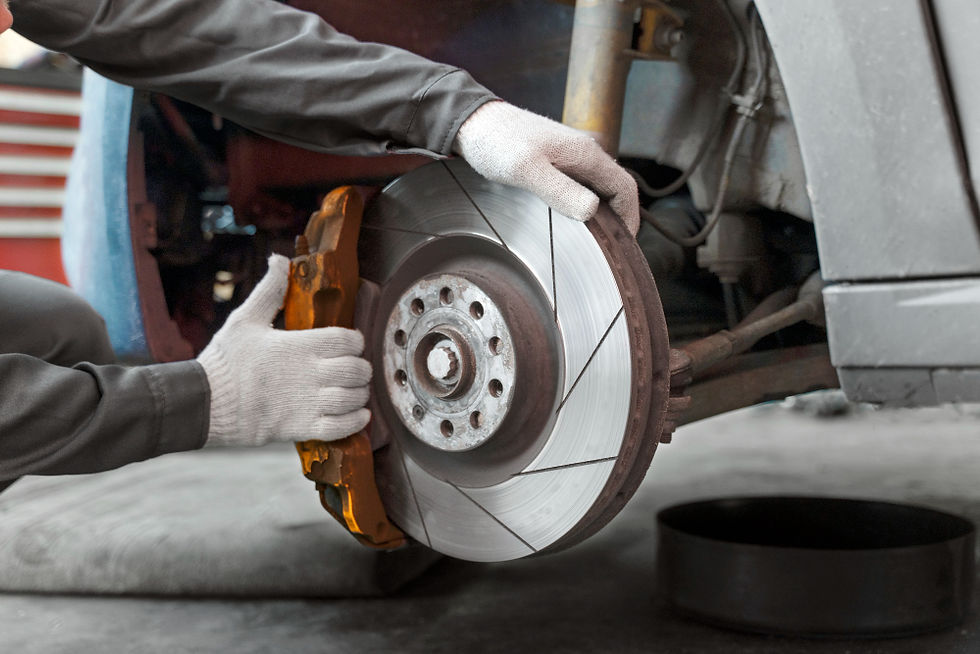How a Roadworthy Certificate Contributes to Road Safety
- Mar 23, 2024
- 4 min read
Have you ever worried about the mechanical reliability of that old car sitting in your driveway? Do you wonder how you can ensure your vehicle is roadworthy and safe? Are you unsure about how you might give a potential buyer confidence in your vehicle's condition? These are all valid concerns, especially when it comes to maximizing safety on our roads. This is where a Roadworthy Certificate (RWC) comes to the rescue.
Given the rising number of vehicles on the roads, safety is often compromised due to aged and faulty cars. Many drivers, whether they're seasoned commuters or new learners, lack awareness about the importance of regular vehicle maintenance. A Roadworthy Certificate, however, can provide this assurance, as it testifies that a car has successfully passed a thorough safety inspection.
In the forthcoming sections, we will explore why an RWC is essential, what it entails, when and to whom it is necessary, and how it promotes safety and peace of mind for all motorists. We will also break down the pros and cons of obtaining an RWC and share some tips about how to get your vehicle ready for inspection.
Why an RWC is Essential

There's no denying that an RWC can ultimately contribute to your vehicle's longevity and, most importantly, your safety on the road. A car undergoes wear and tear over time, and without a regular check, unnoticed faults can accumulate, leading to potentially dire consequences. An RWC provides a comprehensive test that confirms your car meets the recommended safety standards, reducing the risk of accidents caused by vehicle faults.
Moreover, obtaining an RWC isn't just a cautionary measure. In many states and territories, it's a legal requirement for selling or re-registering a used vehicle. This obligation ensures all cars on the road are systematically evaluated, contributing to a safer driving environment, and giving the consumer trust in the vehicle's condition.
Lastly, it provides the driver with peace of mind, knowing that their vehicle isn't just another crumbling, accident-prone contraption on wheels. In detailed terms, an RWC verifies that parts such as tyres, brakes, steering, and lighting are inoperable condition, preventing any unwelcome surprises.
What a Roadworthy Certificate Entails
A Roadworthy Certificate is more than just a piece of paper asserting that your vehicle is fit to be on the road; its a thorough inspection conducted by a licensed vehicle tester. The inspection typically includes assessing the vehicle's overall condition, focusing on key safety-related components such as wheels, tyres, brakes, steering, suspension, body rust or damage, windscreen, and lights.
Additionally, the emission levels are checked against the established environmental standards. It's worth noting, though, that an RWC doesn't guarantee the vehicle's general reliability or overall lifespan. What it does guarantee, however, is that the vehicle has passed a minimum safety standard inspection at the time of the certificate's issuance.
When and to Whom it's Necessary
While the regulations may vary among jurisdictions, generally, an RWC is required when selling a vehicle or re-registering a used vehicle. It's essential for the seller to provide an RWC because, legally, the vehicle cannot be sold without one. It's your responsibility as the car owner to ensure the vehicle is roadworthy.
On the flip side, from a buyer's perspective, an RWC assures that the purchased vehicle meets the standard safety requirements, providing peace of mind about its roadworthiness. Also, if you've moved interstate, you might need an RWC for your vehicle to be re-registered under the new jurisdiction's laws.

Pros and Cons of Obtaining an RWC
A significant advantage of procuring an RWC is that it assures a vehicle's safety, which contributes to the overall safety on roads. It also gives prospective buyers confidence about the vehicle's condition. Moreover, the process helps sellers identify and fix issues before they turn into major problems, potentially saving time and money in the long run.
However, acquiring an RWC can also be viewed as a tedious process, especially if the vehicle fails the initial inspection, which likely means incurring additional costs to rectify the issues. In these situations, it's essential to weigh the advantages against the costs of repairs and resubmission for inspection.
Preparing Your Vehicle for a Roadworthy Inspection
Prior to an inspection, ensure that your vehicle is clean, both inside and outside, enabling the inspector to carry out the process smoothly. Make sure to carry out basic checks on tires, lights, windscreen, and other visible areas for obvious defects. It's also wise to have your car serviced by a certified mechanic to address any lurking mechanical problems.
Conclusion:
In the context of road safety and motorist's peace of mind, the importance of a Roadworthy Certificate is undeniable. Yes, there could be some hiccups, especially if your vehicle isn't initially deemed roadworthy, and it might even feel like an added burden. However, the safety it ensures and the confidence it bestows upon car owners and potential buyers are compelling enough for one to see its necessity. Besides, isn't the reassurance of knowing you're driving a safe vehicle worth the checks and balances? After all, how can one put a price on safety and peace of mind?
Ensure your safety on the road with a roadworthy certificate. Discover how this essential document contributes to road safety and compliance. Don't compromise on your well-being - schedule your vehicle inspection and obtain your roadworthy certificate today. Drive with peace of mind knowing your vehicle is roadworthy!




Comments